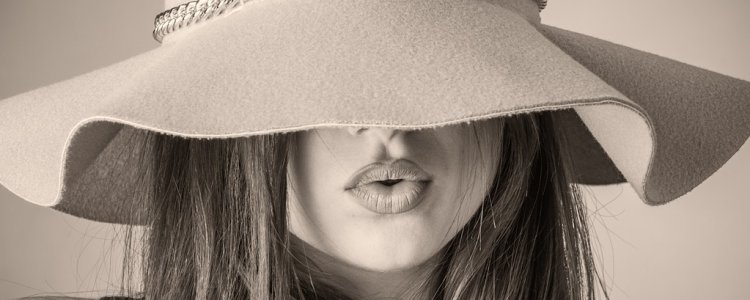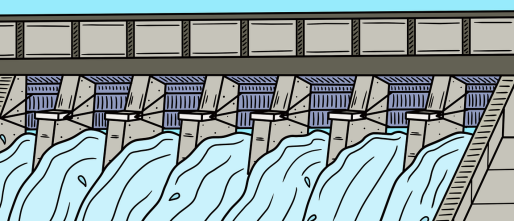Is it easier for men to stand out than for women in Dutch? The initial answer is yes, men always get all of the attention! But… if you are curious to know what the more nuanced answer is, then we’ll need to dive a bit into Dutch. There is one thing that will probably surprise you and it does not exist in English!
But…. before we explore Dutch pronouns a bit, there is one thing that I would like to ask from you as a reader… Please read it with a light heart… don’t be too serious about it! All I want to do now is to play with language and see how concepts -also concepts about gender – can be different in various languages 🙂
If you have learned some Dutch already, then probably you must have seen that there are words for he and she in Dutch, just like in English. But… although the Dutch system has many things in common with English, there are also some important differences…
Hij and zij is not what it seems at first sight….
First of all in English you have he and she, but in Dutch there are more words to choose from. We have hij (he) and zij & ze for she
Hij is quite easy. It looks like he in English right? So if you say: hij is intelligent, then it means he is intelligent. But then, how would you translate the next sentence? Hij is rood…. Chances are high that you think: he is red….. So what are you thinking of? Do you see a red man that got caught by the sun? So here is the first catch…. Hij does not have to be a man by any definition. Hij can refer to anything that is visible. So if you say: hij is rood then it could also refer to de tomaat…. de tomaat is rood en hij is rood…
That is why if you hear from your Dutch colleague: hij werkt niet, it does not necessarily mean that he is talking about another man…. It could also mean: de computer werkt niet or het programma werkt niet Therefore it is good to know that hij does not only mean he in Dutch…. Very often you can also translate it with it, certainly when this thing is clearly visible….
So let’s go to the words zij & ze…. yes, they mean she in English and if you replace the z with an s, then it makes perfect sense….
However, see what happens when you check the next 2 sentences:
Zij werkt
Zij werken
Did you already see the difference? The first sentence means she works and the second sentence means they work. That means that zij & ze can mean both she and they. You can tell the difference if you look at the verb. If the verb ends with en, then you know it is they…
But then… let’s focus on she now… What would be the difference between these 2 sentences?
Zij komt uit Amerika
Ze komt uit Amerika
Both sentences mean more or less the same, but there is a subtle difference. If you say zij then you emphasize it. And yes, if you like, you can move a woman a little bit more to the background when you use the word ze…. It often means that you also already know whom you are talking about, so you do not need to point it out again….
If you like, you can put a woman a bit more to the background in Dutch. Simply use ze instead of zij
So here is the thing… if you say ZIJ it really seems that you are clearly pointing at a woman and as you may guess, this does not always produce a positive feeling. That is why it is important that you do not overuse zij. It could make a woman feel more nervous…. Normally you use zij (the most emphasized form) for calling some attention and then, most of the time you would switch over to ze. Also if you compare with other pronouns then you always use zij. That is why you say: hij en zij, zij en ik, zij en jij etc…
But… now comes the curious thing. Did you notice that there is only one form for hij? There is only the emphasized form! That is why you could say that a man in Dutch always gets a lot of attention. You cannot move hij to the background.
So, what do you think? Is this fair? If this is the case, then stop reading now! And… if you don’t think that this is fair, then right now I can show you a new technique that you can use so that men in Dutch evaporate and dissolve. In a way, it is an advanced technique and Dutch people use it a lot!
There is one secret technique that you can use so that men evaporate and dissolve…
So here is the thing… there is an unemphasized form for hij as well. But… it takes more skill to use. Instead of hij you can also say ie. And then this word ie almost seems to be invisibilbe or inaudible…. Here are some examples: daar gaat ie (there he goes) & hier komt ie (here he comes) . Can you see that with ie, you really put a man to the background now? I would say that ie is far more to the background than ze…. Often ie does not sound like a separate word at all… often you’ll hear something like: gaattie and komtie …
By the way, Dutch people use these sentences a lot… Remember that ie can also refer to any visible thing of course. Imagine that you are waiting for the bus, then you can say: daar komt ie when you see the bus coming. Or there is an annoying mosquito in your bedroom …. then you can say: daar is ie weer (there it is again!)
Here are some secrets if you like to use the word ie as well… First of all, you can never start your sentence with ie, because then it automatically chances into hij. Therefore you will see ie after verbs and also after conjuction words such as want & omdat.
Here are some examples:
Wat wil ie nou? (what does he want then?)
Wanneer komt ie? (when will he / it come?)
Hij is niet op het werk, want ie is ziek (he is not at work, because he is ill)
Hij is niet op het werk, omdat ie ziek is ((he is not at work, because he is ill)
Last but not least, ie is a word that is quite informal and you will not really see it in written texts. When people speak more in an informal way, then you’ll notice that people use it a lot. But.. it may be hard to notice because ie is very emphasized. That is why it is so easy to miss it!
Here is another tip. Did you notice that the verb is always a second element in Dutch?
Ik drink bier – nu drink ik bier
Ik eet een stroopwafel – natuurlijk eet ik een stroopwafel!
By the way, the usage of ie is completely optional. It is simply something that you will hear many times. But, if you like, you can always use hij. If you like, you can keep it simple!
So what do you think? Did you come to any new insights? Please let me know!







Marloes
on 08 Mar 2019Albert Both
on 08 Mar 2019